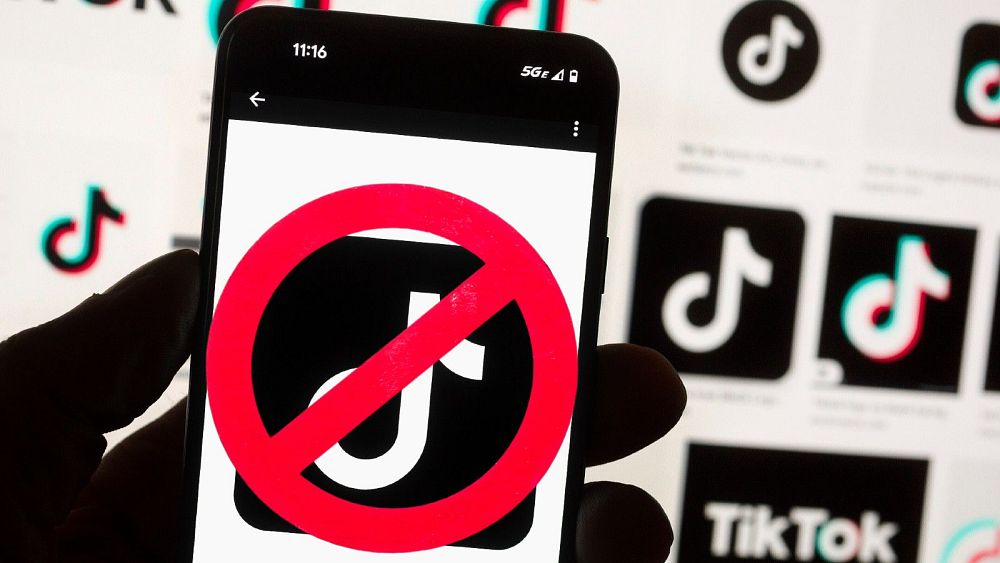
The United Kingdom and New Zealand have become the latest to join the growing list of countries that have recently issued orders banning the use of TikTok on government-issued devices as concerns grow over the app’s privacy and security.
The European Union, The United States, Denmark, Belgium, and Canada have also recently issued orders prohibiting the use of banned TikTok. Experts fear sensitive information could be exposed when the app is downloaded, especially on government devices.
The video-sharing platform, which is owned by the Chinese company Bytedance, has long maintained that it does not share users’ data with the Chinese government and that it is run independently.
TikTok disputes accusations that it collects more user data than other social media companies and has called the bans “basic misinformation,” saying these had been decided with “no deliberation or evidence”.
But many countries remain cautious about the platform and its ties to China. Western technology companies, including Airbnb, Yahoo and LinkedIn, have also been leaving China or downsizing operations there because of Beijing’s strict privacy law, which specifies how companies can collect and store data.
Here are the countries and regions that have already implemented partial or total bans on the app.
The UK
On March 16, Oliver Dowden, the UK Secretary of State in the Cabinet Office, announced in a statement to the UK’s House of Commons an immediate ban of the app on government official devices.
“This is a precautionary move. We know that there is already limited use of TikTok across government, but it is also good cyber hygiene,” the minister said in his address to MPs.
The ban is based on a report by the UK’s National Cyber Security Centre, which found “there could be a risk around how sensitive government data is accessed and used by certain platforms”.
Although the UK was one the first countries to ban the use of other Chinese-owned technology such as Huawei,critics flagged the delay in banning TikTokcompared to allies.
EU institutions
The European Parliament, European Commission, and the EU Council, the three top EU bodies, have all imposed bans on TikTok on staff devices, citing cybersecurity concerns.
The European Parliament’s ban, announced on Tuesday, takes effect on March 20. It also “strongly recommended” that members of parliament and staff remove the app from their personal devices as well.
New Zealand
New Zealand became the latest country on March 17 to announce TikTok will be banned from the phones of government lawmakers at the end of March 2023.
Unlike in other countries such as the UK, the ban won’t affect all government workers and will only be applied to about 500 people in the parliamentary complex.
Parliamentary Service Chief Executive Rafael Gonzalez-Montero said officials could make special arrangements if they needed TikTok to perform their democratic duties.
New Zealand prime minister Chris Hipkins said he didn’t have TikTok on his phone and added, “I’m not that hip and trendy”.
Belgium
Last week, Belgium announced it was banning TikTok from devices owned or paid for by Belgium’s federal government over worries about cybersecurity, privacy, and misinformation for at least six months, the country’s prime minister said.
Responding to Belgium’s announcement, TikTok said it was “disappointed at this suspension, which is based on basic misinformation about our company,” adding that they were “readily available to meet with officials to address any concerns and set the record straight on misconceptions”.
Denmark
On March 6, Denmark’s Defense Ministry announced it would “ban the use of the app on official units” as a cybersecurity measure.
In a statement, the ministry said the Scandinavian country’s Centre for Cyber Security – which is part of Denmark’s foreign intelligence service – had assessed there was a risk of espionage.
The ministry said “there were weighty security considerations within the defence ministry combined with a very limited work-related need to use the app,” and that employees “are required to uninstall TikTok on service phones and other official devices as soon as possible if they have previously installed it”.
United States
Also this month, the US said government agencies had 30 days to delete TikTok from federal devices and systems over data security concerns. The ban applies only to government devices, though some US lawmakers are advocating an outright ban.
More than half of the 50 US states have also banned the app from government devices.
Both the FBI and the Federal Communications Commission have warned that ByteDance could share TikTok user data with China’s authoritarian government.
There is also concern about TikTok’s content and whether it harms teenagers’ mental health. Researchers from the nonprofit Center for Countering Digital Hate said in a report in December that eating disorder content on the platform had amassed 13.2 billion views.
Roughly two-thirds of US teens use TikTok, according to the Pew Research Center.
Canada
After the US announcement, Canada also announced that government-issued devices must not use TikTok, saying that it presents an “unacceptable” risk to privacy and security.
Employees will also be blocked from downloading the application in the future.
India
In 2020, India imposed a ban on TikTok and dozens of other Chinese apps, including the messaging app WeChat, over privacy and security concerns. The ban came shortly after a clash between Indian and Chinese troops at a disputed Himalayan border killed 20 Indian soldiers and injured dozens.
The companies were given a chance to respond to questions on privacy and security requirements but the ban was made permanent in January 2021.
Taiwan
In December 2022, Taiwan imposed a public sector ban on TikTok after the FBI warned that TikTok posed a national security risk.
Government devices, including mobile phones, tablets and desktop computers, are not allowed to use Chinese-made software, which include apps like TikTok, its Chinese equivalent Douyin, or Xiaohongshu, a Chinese lifestyle content app.
Pakistan
Pakistani authorities have temporarily banned TikTok at least four times since October 2020, citing concerns that the app promotes immoral content.
Afghanistan
Afghanistan’s Taliban leadership banned TikTok and the game PUBG in 2022 on the grounds of protecting youths from “being misled”.

